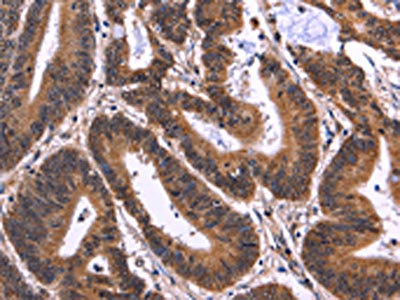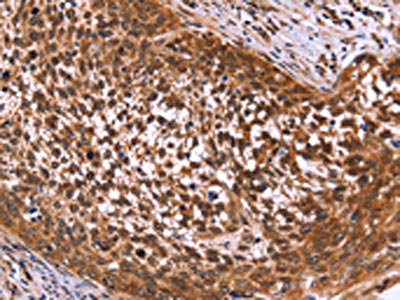Alternative Names
hMSH4 antibody; MSH 4 antibody; MSH4 antibody; MSH4_HUMAN antibody; MutS homolog 4 (E. Coli) antibody; MutS homolog 4 antibody; MutS protein homolog 4 antibody
Species Reactivity
Human,Mouse
Immunogen
Fusion protein of Human MSH4
Immunogen Species
Homo sapiens (Human)
Purification Method
Antigen affinity purification
Concentration
It differs from different batches. Please contact us to confirm it.
Buffer
-20°C, pH7.4 PBS, 0.05% NaN3, 40% Glycerol
Tested Applications
ELISA,IHC
Recommended Dilution
| Application |
Recommended Dilution |
| ELISA |
1:2000-1:10000 |
| IHC |
1:100-1:300 |
Storage
Upon receipt, store at -20°C or -80°C. Avoid repeated freeze.
Lead Time
Basically, we can dispatch the products out in 1-3 working days after receiving your orders. Delivery time maybe differs from different purchasing way or location, please kindly consult your local distributors for specific delivery time.
Description
The fusion protein of human MSH4 is used to immunized rabbits to generate the anti-MSH4 antibody. The resulting product is a polyclonal antibody and exists as an unconjugated IgG. It has undergone antigen affinity purification. And it can react with human and mouse samples. This MSH4 antibody has passed through the quality control via ELISA and IHC analyses. Its target protein MSH4 is a meiosis-specific homologue of the bacterial MutS mismatch repair protein that plays no role in mismatch correction and that is required for wild-type level of meiotic crossovers in budding yeast and nematode.
Usage
For Research Use Only. Not for use in diagnostic or therapeutic procedures.







